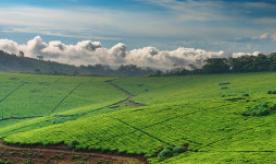Examining the Underinvestment in Agriculture: Capital Constraints and Risk
Research on the returns to capital in developing countries reveals that the potential for farmers to take on profitable investments may be very high. This research project seeks to understand why farmers do not invest more in potentially profitable farming activities: are risk aversion and/or capital constraints important reasons for this underinvestment in agriculture? And what are the effects of risk aversion and capital constraints on farmers’ behavior? To investigate these questions, we are carrying out a randomized controlled field experiment in order to directly evaluate the returns to capital and to insurance among farmers in northern Ghana. Farmers have been randomly selected to be offered one of the following: a capital grant, a rainfall insurance product for free, a rainfall insurance product at various prices - ranging from highly subsidized to the commercial price, or both rainfall insurance and capital. A further group of randomly-selected farmers will not receive any offers, but will be monitored and surveyed as the control group. All participating farmers are being surveyed to allow for a careful understanding of the impact of these interventions on farming and investment decisions, yields, household finances and numerous other indicators. In 2009 capital was provided to selected farmers to coincide with each individual farmer’s requirements for purchasing inputs, and an innovative rainfall insurance policy aimed at providing some protection from drought or excess rain during the height of the farming season was offered free of charge. One of the major barriers to adoption of rainfall insurance products in other countries is believed to be the complexity of those policies. IPA therefore sought to make its rainfall insurance policy as simple as possible. The insurance scheme counts the number of “wet days” (defined as any day with 1 millimeter or more of rain, as recorded at the nearest weather station) in each month. Every farmer who was offered the rainfall insurance product decided to accept. A major component for the second year of the study is to investigate whether farmers are willing to pay for insurance coverage. During November and December, IPA offered a rainfall insurance product to farmers, initially charging a price of one Ghana cedi (approximately 70 US cents) per acre. In fact the demand from farmers was far greater than we had anticipated: 88.1% of those who were offered the insurance at the one-cedi price chose to take up the offer. Faced with this overwhelming response, IPA elected to increase the price for new insurance offers to four Ghana cedis (approximately US$2.80) per acre. Still at the increased price, 71.5% chose to take up the insurance offer – though they did insure fewer acres on average. Finding such an unprecedentedly high level of demand for rainfall insurance, we are now taking the next step and marketing the product to additional farmers at the actuarially fair and commercial price with approval from the National Insurance Commission in March 2010.








